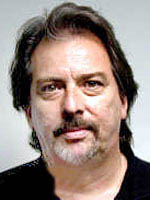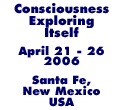
Peter Gorman
Peter has been covering the War on Drugs as an investigative journalist for nearly
two decades for Boston Globe, New York Times, Wall Street
Journal, Harper’s Magazine, Atlantic Monthly, Narco
News Bulletin plus ABC, CBS and NBC on television. He has
also appeared in several documentaries as a Drug War expert.
Peter Gorman was one
of the first outsiders to have extended contact with the
Matses Indians of the Rio Jivari, and has brought back several botanical and herpetological specimens for study in the
West from their medicinal body of knowledge. He has also
collected artifacts from the Matses for the American Museum of Natural History. His work with ayahuasca helped bring
awareness of the visionary vine of the Amazon to the Western world.
He is the recipient
of a grant from Conservation International to study the
traditional healers in several indigenous villages on the
Rio Napo in Peru. His work in the jungles of South America
has been covered in both Newsweek and Science magazines.
Peter has also been a consultant for episodes of National
Geographic's Explorer and the BBC's The Natural
World.
www.pgorman.com
Sunday, April 23
Practical Applications of Sapo, a Magical Medicine Utilized by the Matses Indians of the
Remote Peruvian Amazon
-Peter
Gorman-
Ballroom 4:30pm to 5:30pm
When Peter Gorman pointed at the little pouch hanging above a fire in a Matses hut
on the Rio Galvez 20 years ago, he had no idea that the
medicine it contained was not only utilized to eliminate
the grippe and overcome fatigue, it was used to allow the
Matses to take on and project the spirit of tapirs, identify the sex and health of a fetus, cause abortions when necessary and give a person the ability to work for days with minimal
food, water or sleep.
Now Western medicine,
having studied Sapo for nearly 15 years, is on the verge
of a pharmaceutical watershed based on the Matses medicine
that might help solve Alzheimers, produce non-addictive
pain killers more powerful than morphine, and become another weapon in trying to cure brain cancer.
Goal: To recognize
that even a minor pre-literate people might have a great
deal to contribute to our world. The key to learning what
they have to contribute lies with our ability to see and
hear outside the box of our cultural constraints.
Learning Objectives:
• Learn an appreciation for cultures not normally known to
us,
• Learn that science does not always occur in the test-tube, but frequently occurs via trial and error among people for whom modern science
and well-funded labs are not in their consciousness, and
• Learn that modern science continues to make major discoveries at the feet of ancient peoples, providing a reason to develop a means by
which to continue to coexist with these cultures, rather than depending on a method of incorporating or absorbing all cultures into a single unified culture which eliminates many of the peculiarities and singularities of
the absorbed cultures.





